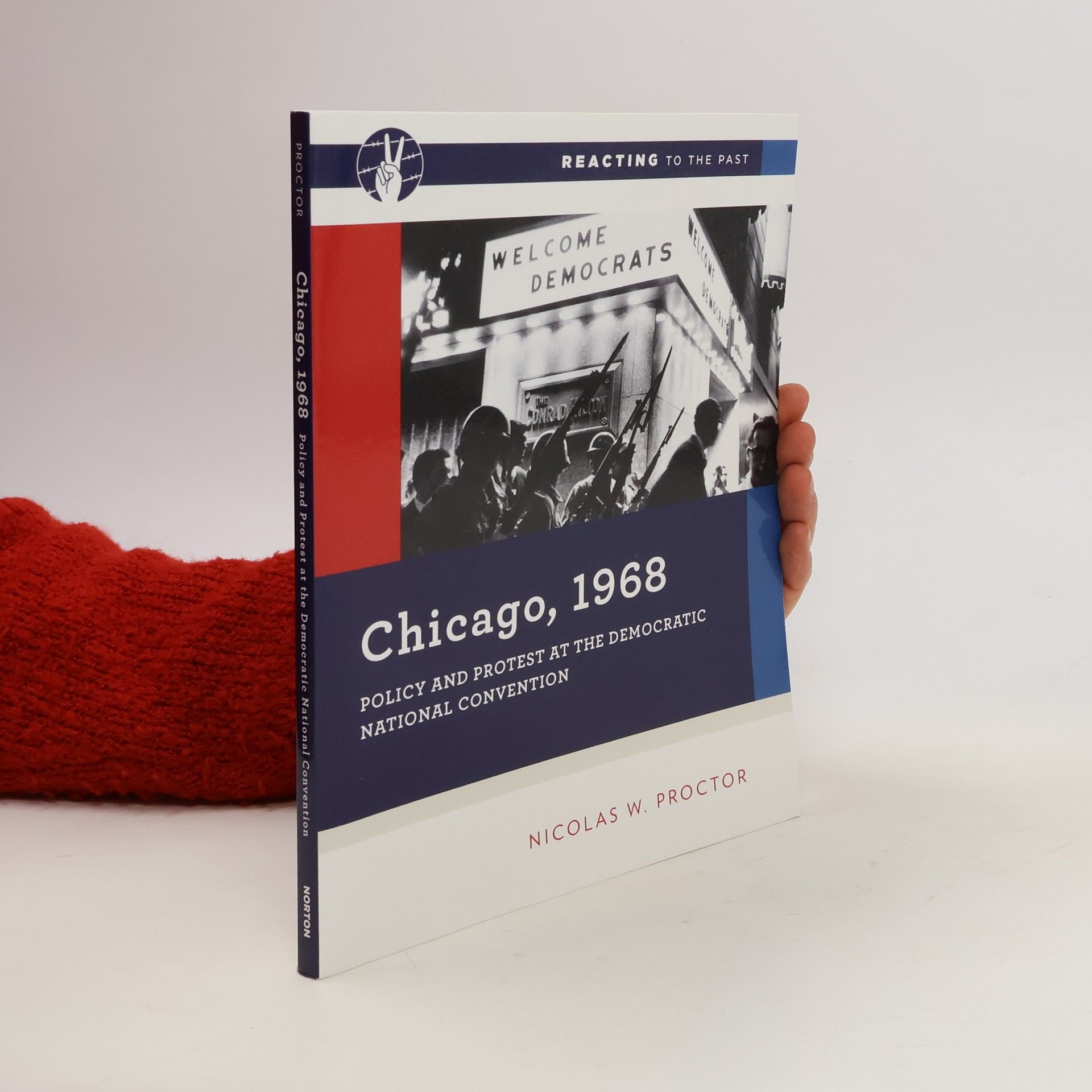Set against the backdrop of the 1968 Democratic National Convention in Chicago, the narrative explores the intense divisions within the party over civil rights, poverty, and the Vietnam War. As protesters, including passionate antiwar activists and the irreverent Yippies, converge on the city, the atmosphere becomes charged with conflict and satire. Players engage with this historical moment, gaining insights into the social and cultural upheaval of the 1960s through the perspectives of delegates and demonstrators alike.
Nicolas W. Proctor Bücher




Chicago 1968
- 184 Seiten
- 7 Lesestunden
"In August 1968, Democrats gather in Chicago to debate a platform for a deeply divided party. Factions are divided over issues such a civil rights, infrastructure, and the war on poverty--not to mention the war in Vietnam. Meanwhile, crowds of protesters descend upon the city. Impassioned antiwar protesters paln sit-ins and protest marches, while the absurdist Yippies, determined to make a mockery of the Convention, intend to nominate a pig for president. Journalists flood the city to cover the stories created by delegates and protesters. Over the course of this game, players will develop a better understanding of the complexities of the social and cultural tumult that has come to be known as "the Sixties.""--
Set against the backdrop of the colonial frontier, the narrative immerses students in the conflict between Pennsylvania settlers and the Delaware Indians. Through a variety of primary sources, including treaties, firsthand accounts, and cultural texts, students participate in a treaty council aimed at restoring peace. The exploration of Quaker pacifism and Indigenous perspectives enriches the understanding of the complexities of war and diplomacy in this historical context.
Set during the secession crisis of 1861, this book immerses readers in the tensions faced by Kentucky's legislature following Lincoln's election. Students confront critical issues surrounding slavery and the legality of secession amidst the threat of violence, prompting deep discussions about the state's future and moral dilemmas of the time.